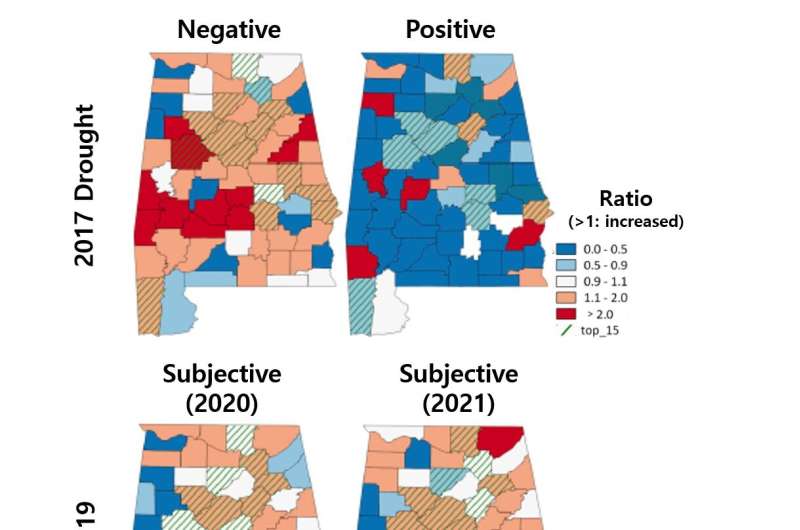This article has been reviewed according to Science X's editorial process and policies. Editors have highlighted the following attributes while ensuring the content's credibility:
fact-checked
peer-reviewed publication
trusted source
proofread
Study finds water pollution complaints declined during COVID-19 outbreak

The written word is said to reflect one's emotions and attitude. By analyzing text, we can make educated guesses about an author's feelings. People who write in a good mood may use words that exude a pleasant fragrance, akin to a rose. Conversely, when they write while feeling upset or angry, their words may seem prickly, like thorns. Could an artificial intelligence (AI) program that accesses vast information volumes more accurately discern an author's attitude or emotions through their writing?
To answer this question, Professor Jonghun Kam and doctoral candidate Anqi Liu, led a research team in the Environmental Science and Engineering Department at POSTECH to analyze the emotional impact of climatic extremes and the COVID-19 pandemic on people's sentiments. They directed AI methodologies to complaints about water pollution. The results are published in npj Clean Water.
The team took advantage of text mining and natural language processing to analyze alternations in emotions and attitudes expressed in the text during climatic extremes and the COVID-19 pandemic. Text mining extracts valuable information from unstructured text data, while natural language processing allows computers to understand and analyze human language.
The two techniques were applied to examine complaints of water pollution in the US state of Alabama. Over the 2012–21 period, over 10,000 pollution reports were submitted to Alabama's participatory surveillance system for environmental monitoring, which is operated through an online platform.
The research team first analyzed the complaints over the past climatic extremes that had been received prior to the pandemic. They grouped these complaints into categories based on the sentiments and attitudes expressed in them, namely negative, positive, objective, and subjective. They found that the number of "negative" complaints spiked 35% above the average during the 2017 drought in Alabama, while 25% more negative complaints than normal were lodged during the 2019 flood season. The AI analysis on higher negative complaint numbers were found to correlate with periods when water was in short supply or badly contaminated.
The researchers then proceeded to scrutinize the data collected from complaints submitted during the COVID-19 pandemic and compared them with randomly selected samples from the overall period. The findings revealed the complaint volume decreased significantly during the pandemic as opposed to the period average as a whole, with a 30% of decreased negative complaints. The impact of the COVID-19 pandemic persisted through 2021. The results of the analysis conducted using AI align with the sentimental alternations observed in individuals due to the societal changes brought about by the pandemic in question.
In 2020, the prevention of the spread of SARS-CoV-2 was the most pressing societal issue to the extent that all outdoor activities were restricted. Consequently, individuals became naturally preoccupied with their own health, resulting in a decline in their interest in water pollution and other environmental issues. The application of artificial intelligence to scrutinize the emotional and attitudinal changes among individuals when they report water pollution complaints highlights the psychological shifts that have occurred.
Such technological advancement was inconceivable prior to the Fourth Industrial Revolution. The study's lead researcher, Professor Kam, remarked, "With the evolution of artificial intelligence technology, we are entering a time in which we can quickly grasp people's emotions during abnormal climate or pandemic occurrences, and utilize this information when formulating government policies and corporate operational plans related to the environment. Going forward, interdisciplinary research combining big data, AI, and environmental science, will be used to propose solutions to societal and environmental issues left unresolved before the Fourth Industrial Revolution began."
More information: Anqi Liu et al, Monitoring the impact of climate extremes and COVID-19 on statewise sentiment alterations in water pollution complaints, npj Clean Water (2023). DOI: 10.1038/s41545-023-00244-y
Journal information: npj Clean Water
Provided by Pohang University of Science and Technology




















